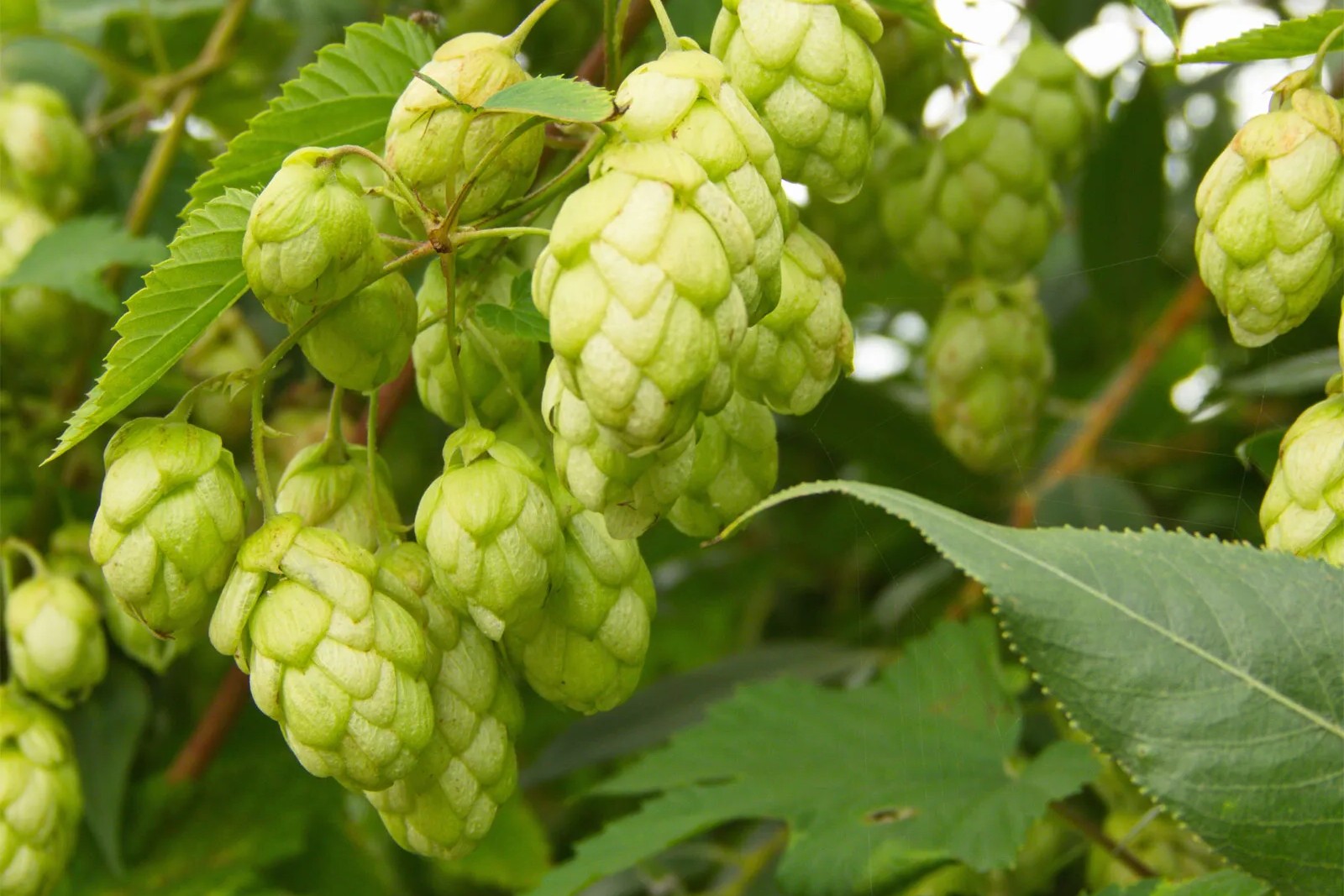
Hops are more than just a key ingredient in your favorite beer. These green, cone-shaped flowers from the Humulus lupulus plant have a rich history and a variety of uses. Did you know that hops have been used for centuries, not just in brewing, but also in herbal medicine? They add bitterness, flavor, and aroma to beer, making each sip unique. Beyond brewing, hops have been known to help with sleep and anxiety. Hops are also fascinating from a botanical perspective, as they are closely related to cannabis. Whether you're a beer enthusiast or just curious, these 32 facts about hops will surprise you!
What Are Hops?
Hops are the flowers of the hop plant, Humulus lupulus. They are a key ingredient in brewing beer, providing bitterness, aroma, and flavor. Let's dive into some fascinating facts about hops.
-
Hops belong to the Cannabaceae family, making them relatives of cannabis.
-
The hop plant is a perennial, meaning it can live for many years and regrow each season.
-
Hops grow on bines, which are similar to vines but climb using stiff hairs rather than tendrils.
-
The flowers used in brewing are called hop cones or strobiles.
-
Hops are primarily grown in temperate climates, with the Pacific Northwest of the United States being a major producer.
History of Hops
The history of hops is rich and spans centuries. They have been used in brewing for a long time, but their journey to becoming a staple ingredient is quite interesting.
-
The first documented use of hops in brewing dates back to the 9th century in Germany.
-
Before hops, brewers used a mixture of herbs and spices called gruit to flavor beer.
-
Hops were initially met with resistance by some brewers who preferred traditional gruit.
-
By the 16th century, hops had become widely accepted in Europe, largely due to their preservative qualities.
-
The English word "beer" originally referred to a hopped beverage, while "ale" was unhopped.
The Science Behind Hops
Hops contribute more than just flavor to beer. They also play a crucial role in the brewing process and the final product's stability.
-
Hops contain alpha acids, which are responsible for the bitterness in beer.
-
The bitterness from hops helps balance the sweetness of malt in beer.
-
Hops also have antimicrobial properties, which help preserve beer and prevent spoilage.
-
Essential oils in hops contribute to the aroma and flavor of beer.
-
There are over 100 different compounds in hops that can affect the taste and smell of beer.
Types of Hops
Not all hops are created equal. Different varieties bring unique characteristics to the beer they flavor.
-
Noble hops are traditional European varieties known for their mild and balanced characteristics.
-
American hops are often more intense, with bold flavors and aromas.
-
Some popular hop varieties include Cascade, Centennial, and Citra.
-
New Zealand and Australian hops are gaining popularity for their unique tropical and fruity profiles.
-
Experimental hop varieties are constantly being developed to create new and exciting flavors.
Growing and Harvesting Hops
The cultivation of hops is a meticulous process that requires specific conditions and care.
-
Hops need a lot of sunlight, ideally 15 hours a day during the growing season.
-
They are typically planted in early spring and harvested in late summer or early fall.
-
Hops can grow up to 20 feet tall in a single season.
-
The plants are usually supported by trellises to help them climb and grow properly.
-
Harvesting hops is labor-intensive, often involving hand-picking the cones.
Uses Beyond Brewing
While hops are best known for their role in beer, they have other uses as well.
-
Hops have been used in traditional medicine for their sedative and calming effects.
-
Hop pillows, filled with dried hop cones, are believed to help with insomnia.
-
Hops are used in some herbal teas for their soothing properties.
-
The fibers from hop bines can be used to make paper and textiles.
-
Hops can also be used in natural dyes, producing a range of colors.
Fun Facts About Hops
Let's wrap up with some fun and quirky facts about hops that you might not know.
-
The tallest hop bine ever recorded reached over 50 feet in height.
-
Hops are dioecious, meaning there are separate male and female plants, but only female plants produce the cones used in brewing.
The Final Sip on Hops
Hops are more than just a beer ingredient. They have a rich history, unique characteristics, and surprising uses. From their origins in ancient times to their role in modern brewing, hops have shaped the beverage industry. They add flavor, aroma, and bitterness to beer, making each sip unique. Beyond brewing, hops have medicinal properties and are used in herbal remedies. They can help with sleep, anxiety, and even digestion.
Farmers cultivate hops with care, ensuring quality and consistency. Different varieties offer diverse flavors, from citrusy to earthy. This versatility makes hops a favorite among brewers and beer lovers alike.
Next time you enjoy a cold beer, remember the journey of hops from field to glass. These little green cones pack a punch, making our favorite brews possible. Cheers to hops and the magic they bring to our drinks!
Was this page helpful?
Our commitment to delivering trustworthy and engaging content is at the heart of what we do. Each fact on our site is contributed by real users like you, bringing a wealth of diverse insights and information. To ensure the highest standards of accuracy and reliability, our dedicated editors meticulously review each submission. This process guarantees that the facts we share are not only fascinating but also credible. Trust in our commitment to quality and authenticity as you explore and learn with us.
